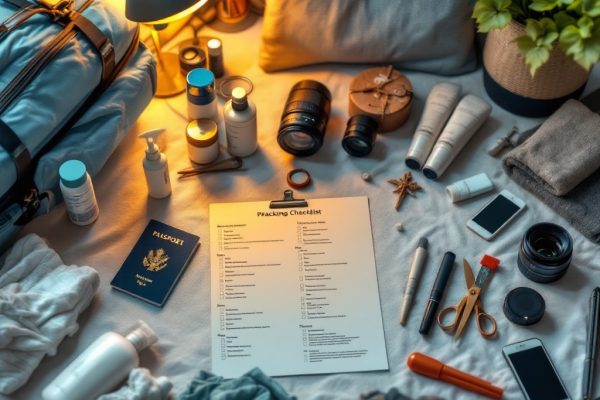Travel China Guide: Cultural Dos and Don’ts Every Traveler Should Know
Planning a trip to China? Unlock a richer travel experience by understanding Chinese etiquette. Learn how to navigate customs, from greetings and dining to gift-giving and conversations. Discover practical tips like downloading WeChat for easy communication and carrying tissues. Prepare for personal questions, a sign of polite interest, not intrusion. Master these cultural nuances for a smoother, more enjoyable journey. Dive in and start exploring!
Important information

- Show respect to elders by greeting them first, offering them the best seat, and using honorifics like Mr. (xiansheng) or Ms. (nüshi) with their surname.
- Be prepared for personal questions about age, income, and marital status, as these are common conversation starters.
- Learn basic Mandarin phrases and download WeChat for easier communication and transactions.
- Understand dining etiquette: share dishes, let elders start first, use serving chopsticks, and don’t stick your chopsticks upright in rice.
- Avoid public displays of affection and be mindful of personal space, which tends to be closer than in Western cultures.
Introduction to Chinese Cultural Etiquette
Planning a trip to China? Immersing yourself in the local customs will greatly enhance your experience. Respect and etiquette are highly valued in Chinese culture. Here’s a guide to navigating local customs:
Be punctual. Arriving on time for all appointments demonstrates respect.
Prepare for personal questions. Inquiries about your age, income, or marital status are common and considered polite conversation starters, not intrusive.
Keep physical contact minimal. A handshake and a smile are appropriate greetings. Avoid public displays of affection.
Download WeChat. While learning basic Mandarin is helpful, many locals may not speak English. WeChat is invaluable for communication, translation, and mobile payments.
Carry tissues. Public restrooms may not always provide toilet paper.
Understand “saving face”. Avoid public criticism or causing embarrassment, as it’s important to maintain respect and harmony.
Plan your itinerary. Pre-trip research on local attractions and customs will ensure a smoother and more enjoyable journey.
Enjoy your Chinese adventure!
Cultural Awareness: Preparing for Your Visit
Planning your trip two to three months in advance allows ample preparation time. Learning basic Mandarin phrases can greatly enhance your interactions with locals. A translation app will also prove invaluable. Familiarizing yourself with Chinese customs beforehand demonstrates respect.
Research local attractions and plan your itinerary, but leave room for spontaneous adventures. Pack appropriate clothing and any necessary medications.
Informing your bank of your travel dates prevents card issues. Ensure you have the correct visa and travel insurance. Copying important documents is always a wise precaution.
Understanding Culture Shock in China
Navigating China for the first time can feel daunting, from language barriers to unique customs. However, a little preparation can transform your experience. Here’s how to make your first trip to China smoother:
Learn basic Mandarin phrases. Showing effort to communicate in the local language demonstrates respect and can be incredibly helpful in various situations.
Understand public etiquette. Queuing patiently and refraining from pushing and shoving are essential for navigating public spaces respectfully.
Respect mealtime customs. Accepting items with both hands and avoiding pointing at others are considered polite gestures.
Dress modestly. This is particularly important when visiting religious sites, showing respect for local traditions.
Carry your hotel address in Chinese. Having your hotel address written in Chinese can greatly assist taxi drivers and locals in helping you find your way.
By embracing these cultural nuances, you’ll find your trip to China much more enjoyable and enriching.
Respect and Sensitivity in Chinese Culture
Showing respect for elders is essential in Chinese culture. Address them with appropriate titles, offer assistance, such as seating or help with tasks, and initiate greetings. Ensure they’re included in conversations. When receiving a gift, accept it with both hands to show respect. Younger individuals typically defer to their elders, avoiding interruptions and offering tea or serving food during meals.
Respectful Interactions
- Address elders with appropriate titles.
- Offer assistance with seating or tasks.
- Initiate greetings and include them in conversations.
- Accept gifts with both hands.
- Defer to elders, avoid interrupting, and offer refreshments.
Cultural Nuances
- Avoid gifting clocks, umbrellas, or sharp objects.
- Be mindful of the number four, which is considered unlucky.
- Observe proper chopstick etiquette.
- Use an open hand gesture instead of pointing with your index finger.
- Refrain from public displays of affection.
- Maintain a respectful volume, especially in temples.
- Inquire about family to show genuine interest.
Showing Respect for Elders
In Chinese culture, showing respect for elders is incredibly important. This is demonstrated through specific customs, such as addressing the eldest person first and offering them the best seat at mealtimes. These practices underscore the cultural emphasis on honoring seniority.
Superstitions and Cultural Faux Pas
Certain gifts and practices are considered taboo in some cultures. Sticking chopsticks upright in a bowl of rice resembles funeral incense offerings, symbolizing death, and is deeply disrespectful. Giving clocks is also inappropriate, as the phrase “giving a clock” sounds like “attending a funeral” in Chinese. Additionally, the number four is considered unlucky because its pronunciation is similar to the word for death.
Social Etiquette and Greetings
Use “ni hao” (hello) as a standard greeting. For elders, use “nin hao” to show extra respect.
Offer a gentle handshake, avoiding a firm grip. Refrain from hugs and kisses, especially during initial meetings.
Always address elders first. Use titles like Mr. (xiansheng) or Ms. (nüshi) with their surname to show politeness.
The Importance of Greetings in China
Chinese greetings emphasize respect and courtesy. When meeting someone new, especially elders, offer a handshake, a slight nod, and minimal eye contact. Use “nin hao,” a more respectful form of “hello,” and address them as Mr./Ms. [Surname]. While “ni hao” (hello) is generally acceptable, avoid hugs and kisses. The common question “Have you eaten?” expresses care, not a literal dinner invitation.
Understanding Handshake Protocols
Handshakes are becoming increasingly common in China, especially in business contexts. A gentle handshake is preferred, as a firm one can be seen as aggressive. Be mindful of cultural nuances.
How to Address Elders and Use Honorific Titles
Showing respect to elders is crucial in Chinese culture. Address them formally using honorifics like Mr. (xiansheng 先生) or Ms. (nǚshì 女士) followed by their surname. A polite “nǐ hǎo (你好)” is a standard greeting. Offer a gentle handshake with a slight nod as a customary greeting. Always greet elders first. Maintain eye contact without staring. Avoid physical affection, such as hugs and kisses, as these are generally viewed as too informal in China.
Dining Etiquette and Table Manners
Key aspects of Chinese dining etiquette:
- Sharing is a cornerstone of Chinese dining, try a bit of everything and express your enjoyment.
- Show respect to elders by letting them begin the meal first.
- Toasting is common; be prepared with a cheerful “gan bei” (dry cup) before drinking.
- It’s acceptable to drink from your bowl and use chopsticks.
- Offer food to others before serving yourself.
- Reciprocate toasts and express gratitude to your host at the meal’s end.
- A light tap on the table acknowledges someone refilling your tea.
- While finishing your food shows appreciation, leaving a small amount is also perfectly fine.
Important things to avoid:
- Never stick chopsticks upright in your food; use the provided serving utensils or lay them across your dish when finished.
- Avoid placing bones or inedible parts in your rice bowl.
- Refrain from tapping your chopsticks or using them for shared dishes.
- Tipping is not customary in Chinese dining.
- Be aware that drink options besides beer might be limited, and hot water is the standard beverage.
Additional tips for banquets:
- Enthusiastically participate in toasts and sample all the dishes offered.
- Follow your host’s lead and begin eating when they do.
- Service may be less attentive than you’re accustomed to, but this is not a reflection of the quality of the dining experience.
Communal Dining: The Chinese Way
Sharing dishes is a cornerstone of Chinese dining culture. Food is placed centrally on the table, allowing everyone to serve themselves and fostering a sense of togetherness. This strengthens community bonds. This widespread practice symbolizes unity and is integral to both dining traditions and social interaction in China.
Chopsticks: Do’s and Don’ts
Before your trip to China, master the art of using chopsticks to avoid dining faux pas. Never stick your chopsticks upright in a bowl of rice or tap your bowl, as this resembles a funeral rite. When sharing dishes, use the serving utensils provided instead of your personal chopsticks. Avoid tapping your chopsticks on the table, especially in a private home, as it is considered impolite. Proper chopstick etiquette shows respect for Chinese culture.
Table Etiquette: Polite Practices
Show appreciation by savoring each dish. As a sign of respect, elders are served first. It’s considered polite to leave a small amount of food on your plate. However, refrain from sticking your chopsticks upright in a bowl, as this gesture resembles a funeral rite. Similarly, avoid tapping your chopsticks against the bowl, as this is considered rude. Here’s a summary of dining etiquette tips:
- savor each dish,
- serve elders first,
- leave a small amount of food,
- don’t stick chopsticks upright in a bowl,
- don’t tap chopsticks against the bowl.
In essence, be considerate of these cultural customs.
The Art of Toasting: Gan Bei
In China, the toast *ganbei* (干杯), meaning “dry cup” or “empty cup“, is a gesture of goodwill and camaraderie during meals. Emptying your glass after this toast demonstrates respect.
Gift Giving and Receiving Etiquette
Gift-giving in China is a nuanced practice rooted in tradition, emphasizing respect and humility. Present gifts with both hands, and anticipate a polite refusal a few times before acceptance. This signifies humility, not rejection. Consider thoughtful gifts like small tokens from your home, such as books or local sweets. Avoid sharp objects and clocks, as they carry negative connotations. Similarly, refrain from using black or white wrapping paper due to their cultural associations. Finally, wait to open your gift, as opening it immediately is not customary. Here are some helpful tips to remember:
Do’s
- Present gifts with both hands.
- Offer small, thoughtful tokens from your home.
- Wait to open your gift.
Don’ts
- Give sharp objects or clocks.
- Use black or white wrapping paper.
- Open gifts immediately.
How to Present and Accept Gifts
In Korea, present and accept gifts with both hands to show respect. It is polite to refuse a gift the first time it is offered, accepting it only after a few offers. Wait to open the gift until later to show your appreciation.
Modesty in Gift Acceptance
In China, politeness dictates downplaying a gift’s value. It’s customary to decline a present multiple times before finally accepting. This gesture reflects humility, a highly valued trait in Chinese culture. Therefore, initial refusals shouldn’t be surprising; they simply signify good manners.
Communication and Conversation Tips
Navigating Chinese Culture: Communication TipsWhen visiting China, be prepared for personal questions about your age, income, or relationship status. These inquiries, considered polite conversation starters, help build rapport. Answering gracefully demonstrates respect. Learning basic Mandarin phrases will also be appreciated. Keep in mind that “yes” or a nod might simply indicate the person is listening, not necessarily agreeing. Avoid direct disagreement, which is considered impolite; instead, express dissent indirectly to maintain harmony. Raising your voice is counterproductive and might lead to being ignored. Steer clear of sensitive topics like politics or religion, and avoid euphemisms and slang, which can easily be misunderstood. Finally, ask questions precisely to ensure clarity and avoid ambiguity.
Conversation
- Be prepared for personal questions about age, income, or relationship status, as these are seen as polite conversation starters in China.
- Answering such questions gracefully demonstrates respect and helps build rapport.
- Learning basic Mandarin phrases will be greatly appreciated.
Communication Style
- A “yes” or nod might indicate listening, not agreement.
- Avoid direct disagreement; express dissent indirectly to maintain harmony.
- Raising your voice is counterproductive and may lead to being ignored.
- Steer clear of sensitive topics like politics or religion.
- Avoid euphemisms and slang, which are easily misunderstood.
- Ask questions precisely to ensure clarity and avoid ambiguity.
Personal Questions: Acceptable Topics
In China, asking about someone’s age, marital status, family, and even income is perfectly acceptable. These questions aren’t considered intrusive. Rather, they are a way to establish connections and demonstrate genuine interest. This forms a normal part of polite conversation.
What to Avoid in Conversations
When conversing, avoid potentially contentious topics like politics and religion. Use clear, direct language instead of slang and euphemisms. Speaking calmly and respectfully is essential, especially in China, where direct criticism is frowned upon. Instead of saying “no” outright, which can be perceived as impolite, try gentler alternatives like “maybe later” or “I’ll think about it”. Maintain respect and sensitivity to cultural nuances.
Communicating Effectively in China
When engaging in conversations, it’s advisable to steer clear of potentially sensitive subjects such as political discussions and religious beliefs. Opt for clear and straightforward language, avoiding slang and euphemisms that might create confusion or misinterpretations. Maintaining a calm and respectful tone is crucial, especially within the Chinese cultural context, where direct criticism is often discouraged.
Navigating Cultural Nuances
Instead of directly saying “no,” which could be perceived as impolite, consider using more subtle alternatives like “maybe later” or “I’ll think about it.” These expressions allow for a gentler and more respectful decline while preserving harmony in the conversation. Above all, demonstrate respect and sensitivity toward cultural nuances to foster positive communication and build stronger relationships.
Public Conduct and Personal Space
Public displays of affection are uncommon in China, reflecting the cultural emphasis on modesty and restraint. Travelers should respect this by avoiding excessive PDA. Personal space is also perceived differently, often closer than in Western cultures. Crowded spaces are common, and occasional pushing is unavoidable. Be prepared for close contact, particularly in queues or on public transport. Respecting local customs, including queuing practices and acceptable noise levels, not only builds positive relationships with locals but also makes your trip more enjoyable.
Understanding Chinese Customs
Public displays of affection (PDA) are uncommon in China. This reflects the cultural value placed on modesty and restraint. Travelers should avoid excessive PDA to respect local customs.
Navigating Public Spaces
Personal space is often closer than in Western cultures. Crowded spaces are the norm, and some pushing or bumping is unavoidable. Be prepared for close contact, especially in queues or on public transport.
Respecting local customs like queuing practices and acceptable noise levels enhances your travel experience and fosters positive interactions with locals.
Managing Public Displays of Affection
Travelers to China should be aware that public displays of affection are generally considered inappropriate. Minimize physical contact to respect local customs.
Respecting Local Customs and Traditions
When visiting religious sites, dress respectfully.
Show respect for local customs by accepting gifts with both hands and refraining from pointing.
Defer to elders and those in positions of authority.
Learning basic Mandarin can enhance your experience.
Having your hotel’s address written in Chinese is a wise precaution.
Be mindful of personal space.
It’s generally advisable to avoid giving money to beggars.
Avoid discussing sensitive political subjects.
Criticizing the government is also best avoided.
Remember the cultural significance of chopsticks: avoid placing them upright in a bowl of rice.











